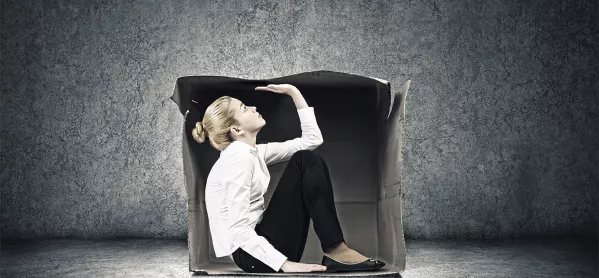- Home
- Removing schools’ freedoms? It’s shocked me to the core
Removing schools’ freedoms? It’s shocked me to the core

There are many deeply held beliefs and concepts that have been tested throughout the pandemic - not least the idea of freedom.
Whether individually or collectively, the result of the coronavirus pandemic has been to curb freedoms, and to remove some of the liberties we had previously taken for granted, in order to protect the whole.
While these measures may make many of us feel uncomfortable, they are time-limited and reactive - and perfectly understandable.
But where do these freedoms begin and end? Where once there was certainty, now there is doubt and confusion. And, for some, there is growing anger and resentment.
Coronavirus: Using academy powers for good
The recent overruling by the Department for Education of an academy trust’s decision to close early for the Christmas break puts the concept of freedom under even greater scrutiny.
It is undisputed that a foundational concept behind academisation is the freedom to exercise greater decision-making, independent of centralised or local control. The aim is to reduce centralised input, creating a more trusted and self-governing system.
During the pandemic, for example, these freedoms for groups of schools working closely together have enabled us to put in place measures that alleviated workload and benefited wellbeing. We have been serving the needs of our school communities on the ground.
But the pandemic has resulted in a change in how the Department for Education is framing the system. The dizzying array of guidance, frameworks and approaches have been predicated on a view that a centralised response was key, even in a fragmented and varied system.
Top-down controls
In August, we had the introduction of a four-tier system for education, in which the highest tier would see all settings open only to vulnerable and key worker children, with the exception of alternative-provision and special schools.
This seemed eminently sensible, and we all set about creating a new hierarchy of controls and risk assessments to be ready for implementation.
By October, we then had the introduction of a national three-tier system, with no reference to the four-tier school system. Colleagues in regions of our country facing the highest tiers of lockdown had no triggering of the school-based system.
It was clear that we were not to deploy rotas or blended learning as a way of managing operations. We were instead directed to react to specific cases, and then faced variations in advice on a local level.
By the start of November, the picture had become even more varied. Some colleagues in the South had relatively little disruption. Not in the North, where schools were having to deal with half of their staff self-isolating, and pupils who were sometimes beginning their third round of self-isolation.
The freedom to serve
In lockdown two, we have been faced with no rotas, no changes and clearly no freedom to make the choices for the children and communities we serve with our local knowledge and networks.
The decision, based on the Coronavirus Act, to overturn the decision of an academy trust working on the frontline to close early for Christmas, combined with the decision in the past few days to quietly scrap education’s four-tier system, has shocked many of us to the core.
This is not because it shows that the freedoms are to an extent illusory. Nor is it because it shows that we are not respected and trusted as a sector or system.
Quite simply, we’re shocked because the centralisation of decision-making has been neither efficient nor effective. This isn’t about politics. It is about the ability to give us the agency needed to be the leaders for our children and communities that we all signed up to be, regardless of the setting or type of institution we are in.
In terms of freedom, this isn’t about binaries. This is about the mature discussion needed about how, as a sector, we find a united and collaborative voice to ensure that we do not end up pushed from pillar to post. Public servants need the freedom to serve.
Dan Morrow is chief executive of the Woodland Academy Trust
Register with Tes and you can read two free articles every month plus you'll have access to our range of award-winning newsletters.
Keep reading with our special offer!
You’ve reached your limit of free articles this month.
- Unlimited access to all Tes magazine content
- Save your favourite articles and gift them to your colleagues
- Exclusive subscriber-only stories
- Over 200,000 archived articles
- Unlimited access to all Tes magazine content
- Save your favourite articles and gift them to your colleagues
- Exclusive subscriber-only stories
- Over 200,000 archived articles



